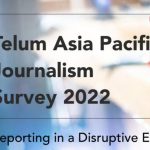The UK and US have intervened in the race to develop ever more powerful artificial intelligence technology, as the British competition watchdog launched a review of the sector and the White House advised tech firms of their fundamental responsibility to develop safe products.
Regulators are under mounting pressure to intervene, as the emergence of AI-powered language generators such as ChatGPT raises concerns about the potential spread of misinformation, a rise in fraud and the impact on the jobs market, with Elon Musk among nearly 30,000 signatories to a letter published last month urging a pause in significant projects.
The UK Competition and Markets Authority (CMA) said on Thursday it would look at the underlying systems – or foundation models – behind AI tools. The initial review, described by one legal expert as a “pre-warning” to the sector, will publish its findings in September.
On the same day, the US government announced measures to address the risks in AI development, as Kamala Harris, the vice-president, met chief executives at the forefront of the industry’s rapid advances. In a statement, the White House said firms developing the technology had a “fundamental responsibility to make sure their products are safe before they are deployed or made public”.
The meeting capped a week during which a succession of scientists and business leaders issued warnings about the speed at which the technology could disrupt established industries.
On Monday, Geoffrey Hinton, the “godfather of AI”, quit Google in order to speak more freely about the technology’s dangers, while the UK government’s outgoing scientific adviser, Sir Patrick Vallance, urged ministers to “get ahead” of the profound social and economic changes that could be triggered by AI, saying the impact on jobs could be as big as that of the Industrial Revolution.
Sarah Cardell said AI had the potential to “transform” the way businesses competed, but that consumers must be protected.
The CMA chief executive said: “AI has burst into the public consciousness over the past few months but has been on our radar for some time. It’s crucial that the potential benefits of this transformative technology are readily accessible to UK businesses and consumers while people remain protected from issues like false or misleading information.”
ChatGPT and Google’s rival Bard service are prone to delivering false information in response to users’ prompts, while concerns have been raised about AI-generated voice scams. The anti-misinformation outfit NewsGuard said this week that chatbots pretending to be journalists were running almost 50 AI-generated “content farms”.
Last month, a song featuring fake AI-generated vocals purporting to be Drake and the Weeknd was pulled from streaming services.
The CMA review will look at how the markets for foundation models could evolve, what opportunities and risks there are for consumers and competition, and formulate “guiding principles” to support competition and protect consumers.
The leading players in AI are Microsoft, ChatGPT developer OpenAI – in which Microsoft is an investor – and Google parent Alphabet, which owns a world-leading AI business in UK-based DeepMind, while leading AI startups include Anthropic and Stability AI, the British company behind Stable Diffusion.
Alex Haffner, competition partner at the UK law firm Fladgate, said: “Given the direction of regulatory travel at the moment and the fact the CMA is deciding to dedicate resource to this area, its announcement must be seen as some form of pre-warning about aggressive development of AI programmes without due scrutiny being applied.”
In the US, Harris met the chief executives of OpenAI, Alphabet and Microsoft at the White House, and outlined measures to address the risks of unchecked AI development. In a statement following the meeting, Harris said she told the executives that “the private sector has an ethical, moral, and legal responsibility to ensure the safety and security of their products”.
The administration said it would invest $140m (£111m) in seven new national AI research institutes, to pursue artificial intelligence advances that are “ethical, trustworthy, responsible, and serve the public good”. AI development is dominated by the private sector, with the tech industry producing 32 significant machine-learning models last year, compared with three produced by academia.
Leading AI developers have also agreed to their systems being publicly evaluated at this year’s Defcon 31 cybersecurity conference. Companies that have agreed to participate include OpenAI, Google, Microsoft and Stability AI.
“This independent exercise will provide critical information to researchers and the public about the impacts of these models,” said the White House.
Robert Weissman, the president of the consumer rights non-profit Public Citizen, praised the White House’s announcement as a “useful step” but said more aggressive action is needed. Weissman said this should including a moratorium on the deployment of new generative AI technologies, the term for tools such as ChatGPT and Stable Diffusion.
“At this point, Big Tech companies need to be saved from themselves. The companies and their top AI developers are well aware of the risks posed by generative AI. But they are in a competitive arms race and each believes themselves unable to slow down,” he said.
The EU was also told on Thursday that it must protect grassroots AI research or risk handing control of the technology’s development to US firms.
In an open letter coordinated by the German research group Laion – or Large-scale AI Open Network – the European parliament was told that one-size-fits-all rules risked eliminating open research and development.
“Rules that require a researcher or developer to monitor or control downstream use could make it impossible to release open-source AI in Europe,” which would “entrench large firms” and “hamper efforts to improve transparency, reduce competition, limit academic freedom, and drive investment in AI overseas”, the letter said.
“Europe cannot afford to lose AI sovereignty. Eliminating open-source R&D will leave the European scientific community and economy critically dependent on a handful of foreign and proprietary firms for essential AI infrastructure.”
The largest AI efforts, by companies such as OpenAI and Google, are heavily controlled by their creators. It is impossible to download the model behind ChatGPT, for instance, and the paid-for access that OpenAI provides to customers comes with a number of legal and technical restrictions on how it can be used. By contrast, open-source efforts involve creating a model and then releasing it for anyone to use, improve or adapt as they see fit.
“We are working on open-source AI because we think that sort of AI will be more safe, more accessible and more democratic,” said Christoph Schuhmann, the organisational lead at Laion.
This article was sourced from The Guardian
MARKETING Magazine is not responsible for the content of external sites.









